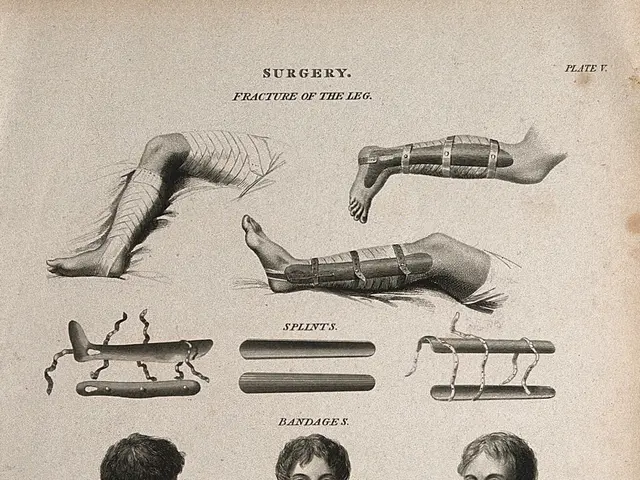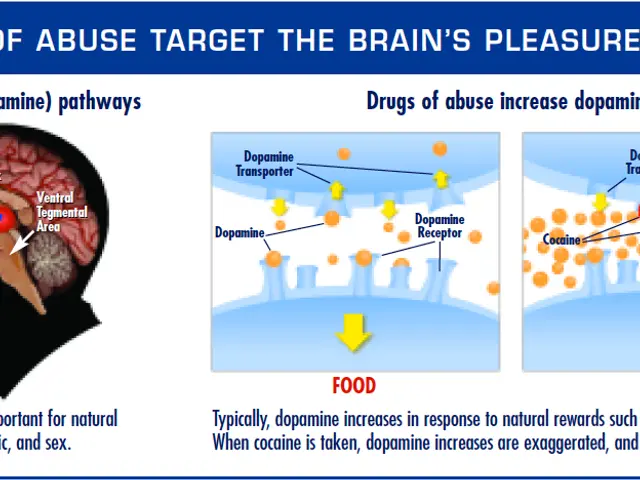"High numbers of Italians opt out of organ donation, potentially jeopardizing transplantation procedure"
Organ Donation in Italy Hits a Decade Low
Italy, known for its strong healthcare system and generous donors, is currently experiencing a disheartening dip in organ donation willingness. In the first quarter of 2025, approximately 40% of renewed identity card holders explicitly refused organ donation, a percentage never seen before since records began. The National Transplant Center, responsible for distributing donated organs in Italian hospitals, is growing increasingly concerned about potential organ shortages and the impact on thousands waiting for transplants.
Declaring Your Wish
Organ and tissue donation after death involves donating organs such as the heart, lungs, kidneys, and tissues like skin and corneas. Consent can be expressed at the town hall’s office when renewing an identity card, through the Italian Association for Organ, Tissue, and Cell Donation (AIDO) form, via local healthcare providers, or a simple note indicating consent kept among personal documents. If no declaration is made in a lifetime, donation is only permitted if the family is in favor.
Trends in Consent
According to the National Transplant Center’s report, in the first three months of 2025, 60.3% consented to organ removal, while 39.7% chose against it. The remaining 41.6% abstained. Currently, there are 22.3 million declarations in the Transplant Information System, with 15.5 million consents and 6.8 million oppositions. The report shows that 'no' votes increased by 3.4% compared to 2024, while abstentions decreased slightly. The most willing to donate are those aged 40-50, while the oldest and youngest groups show the highest opposition rates.
Generosity Varies by Municipality
Further analysis shows that the propensity to donate varies depending on the municipality, with Verceia (a small village in Sondrio province) topping the list in 2024 for its generosity. Trento, Sassari, and Verona remain among the top cities with over 100,000 inhabitants, emphasizing regional differences. The National Transplant Center aims to launch a demographic survey to better understand these patterns and develop strategies for increasing donation consent.
Despite Italy’s generous donors, the rising number of citizens refusing donation poses a concerning issue for hospital transplants. Cultivating public understanding, addressing misconceptions, and fostering trust in the medical system may be essential steps towards a future where more lives can be saved through organ donation.
- The National Transplant Center is growing increasingly concerned about potential organ shortages due to the rising number of Italian citizens refusing organ donation.
- Consent for organ donation after death can be expressed at various places, including the town hall’s office, AIDO form, local healthcare providers, or a simple note kept among personal documents.
- In the first quarter of 2025, approximately 40% of renewed identity card holders in Italy explicitly refused organ donation, a percentage never seen before since records began.
- The report from the National Transplant Center indicates that 'no' votes increased by 3.4% compared to 2024, while abstentions decreased slightly.
- The trend shows that the elderly and the youngest age groups exhibit the highest opposition rates to organ donation, in contrast to those aged 40-50 who are the most willing to donate.
- Verceia, a small village in Sondrio province, was the most generous municipality for organ donation in 2024, with Trento, Sassari, and Verona among the top cities for donation consent.
- The National Transplant Center plans to launch a demographic survey to better understand the regional differences in donation consent and develop strategies for increasing donation rates.
- Tackling misconceptions about organ donation, enhancing public understanding, and building trust in the medical system may be crucial to encouraging more organ donations in the future.
- In the face of general news about organ donation in Italy hitting a decade low, discussions about policy and legislation related to organ donation, mental health therapies and treatments, nutrition, fitness and exercise, health and wellness, and even cannabidiol (CBD) may become increasingly relevant.








